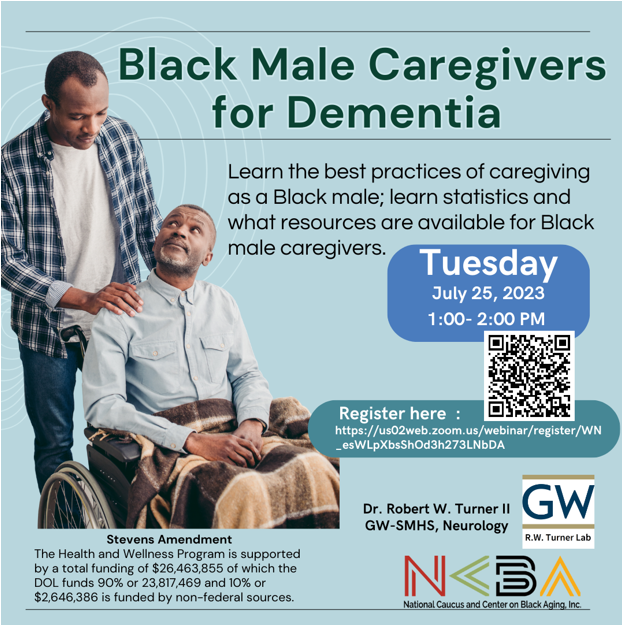Read More

On Tuesday, July 25 at 1pm ET, learn the best practices of caregiving as a Black male; learn statistics and what resources are available for Black male caregivers.
Read More
The National Alliance for Caregiving conducted structured interviews with professionals from patient advocacy groups and diverse family caregivers caring for someone who had been diagnosed with heart disease, blood cancer, lung cancer or lupus, conditions that are known to disproportionately affect diverse communities. We wanted to better understand how culture and identity affects the way caregivers provide care, access culturally responsive supports and resources, and how caregivers engage with patient advocacy groups.
With the guidance of a panel of disease representative patient advocacy organizations, these findings shaped the content of this guide and supported the need for sections detailing the research findings, articulating what diverse caregivers say about their experiences, and offering tips for both advocating for and empowering diverse caregivers. What Providers Should Know: Factsheets About Diverse Family Caregivers, was contributed by the Diverse Elders Coalition and offers supporting evidence documenting the unique needs of diverse caregivers.
Read More
NCBA hosts a webinar detailing fall statistics, risk factors, and how to reduce your risk of falling.
Read More
The National Caucus and Center on Black Aging hosts an educational webinar on the ins and outs of Palliative Care and how it supports patients dealing with serious illnesses and their caregivers.
Read More
The National Caucus and Center on Black Aging hosts an educational webinar on learning financial statistics and what steps to take to benefit from Social Security as a caregiver.
Read More
The National Caucus and Center on Black Aging hosts an educational webinar on learning how to stay well emotionally during difficult times while caregiving.
Read More